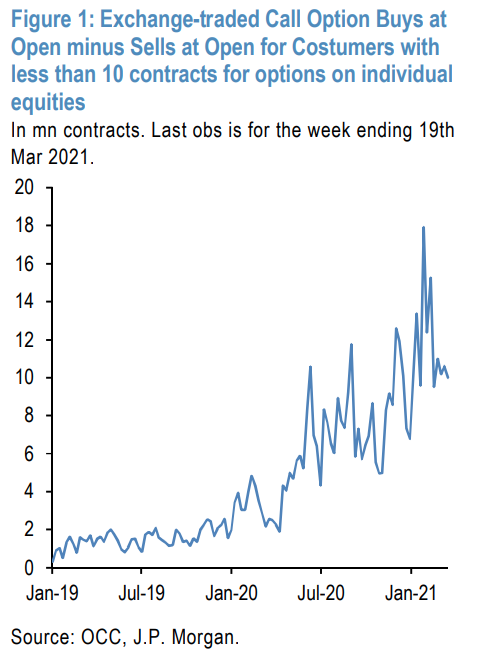
- The latest wave of stimulus checks has driven an expected uptick in retail-investing activity, but it's occurring with less breadth than the previous cycle in December and January, says JPMorgan.
- Most of the money invested in the market has been allocated to more traditional areas, as opposed to riskier ones like tech stocks and bitcoin.
- Retail investors did pile into their favorite stocks, but only temporarily, JPMorgan finds.
- Sign up here for our daily newsletter, 10 Things Before the Opening Bell.
Retail traders lived up to expectations and used their latest stimulus checks to invest. But their activity isn't as broad or risky as it was during the previous round of direct payments in December and January, JPMorgan finds.
The investing being done by everyday Americans has been focused more on traditional assets like cash equity, exchange-traded funds, and small caps, and less on more speculative areas like tech stocks and bitcoin, the firm wrote in a client note on Tuesday.
Retail investors have also been less active in the options market, which saw volume spike during the previous stimulus cycle as traders clamored for upside exposure to red-hot meme stocks like GameStop. The chart below shows the spike seen in December and January failing to materialize during the latest round of checks.

Despite the more muted activity, retail investors still used stimulus to pile into their favorite stocks. But the initial surge was temporary and has since quickly tapered.
The rapid rise of retail investors has been a huge force in driving the stock market the past year, due to the increase in commission-free trading applications, government stimulus checks, and pandemic boredom as the majority stayed and worked at home.
